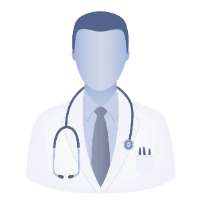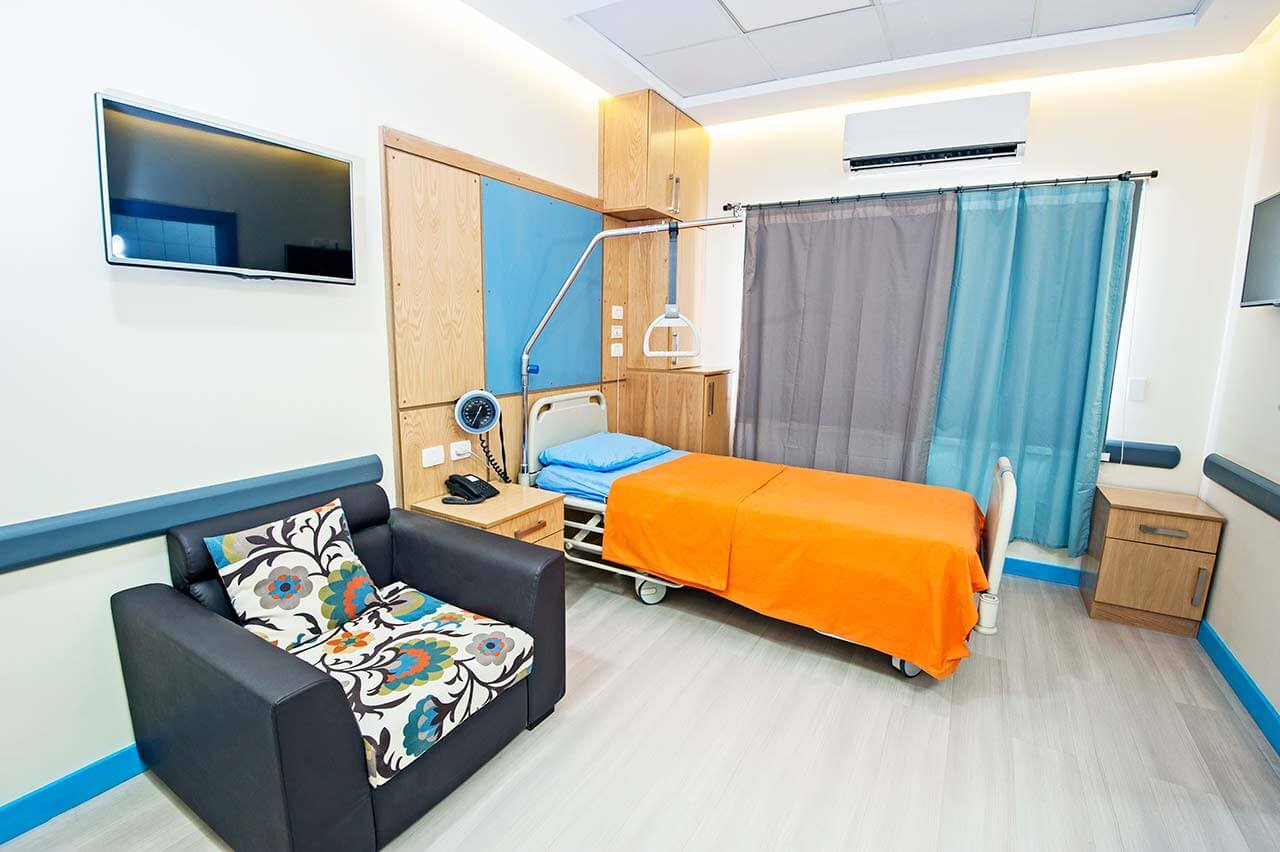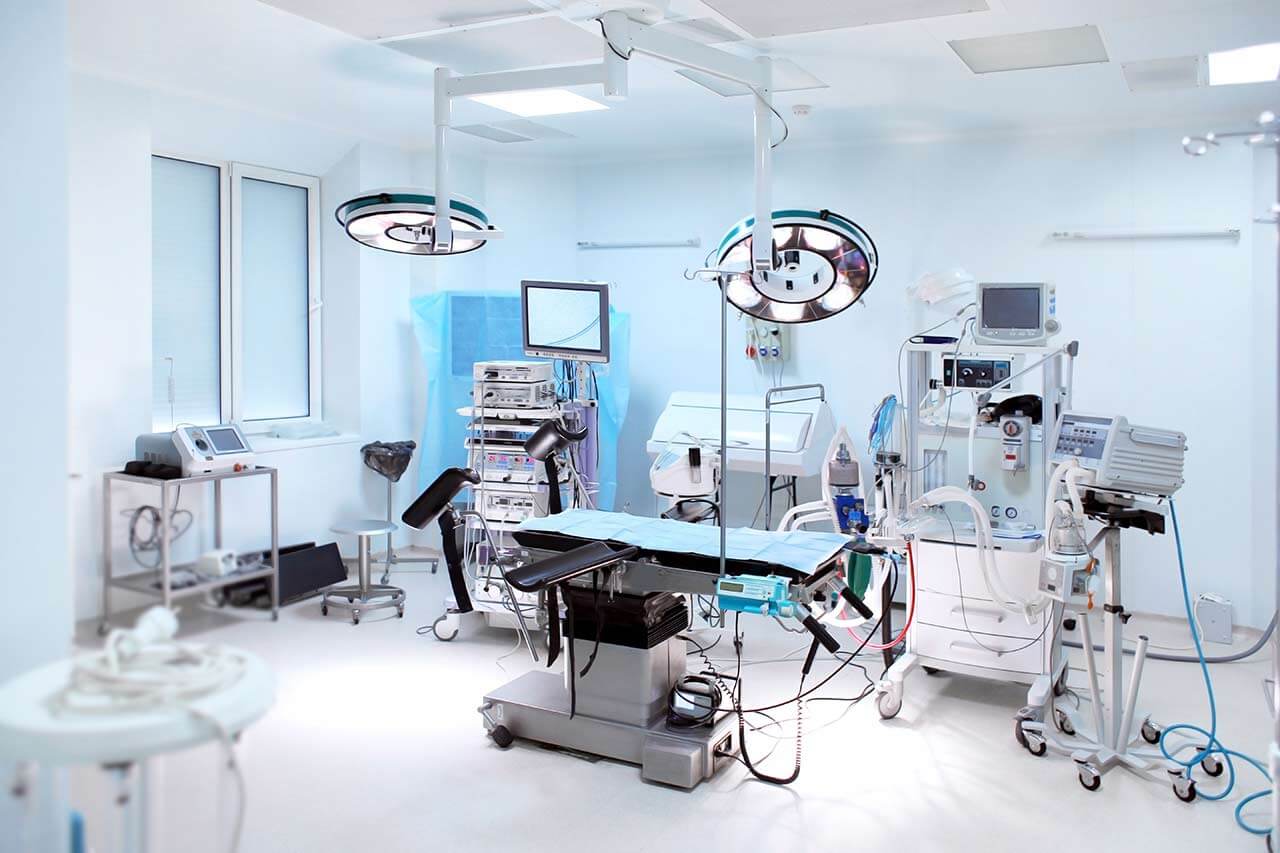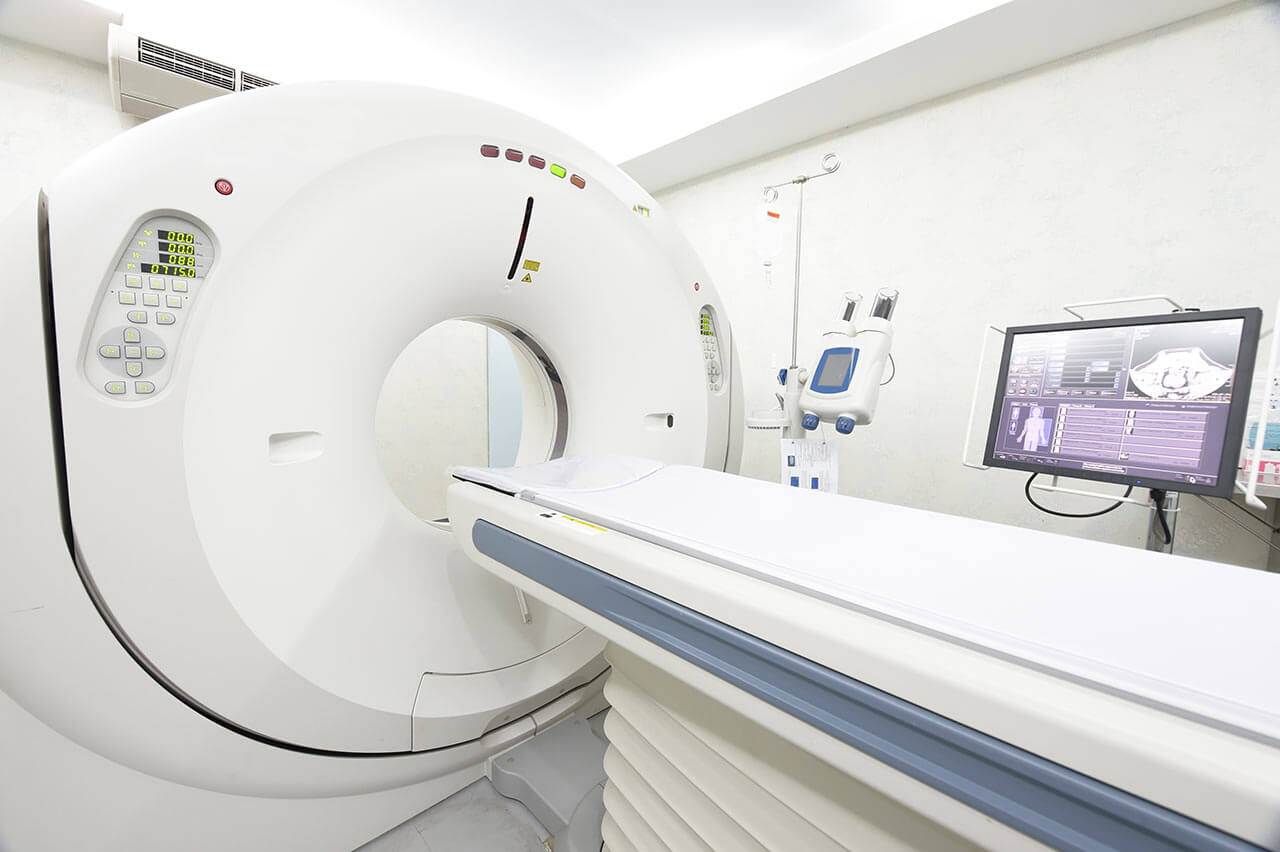
About the Department of Neurology and Epileptology at University Hospital Carl Gustav Carus Dresden
The Department of Neurology and Epileptology at the University Hospital Carl Gustav Carus Dresden offers the full range of modern therapy for diseases of the central and peripheral nervous system, as well as neuromuscular pathologies. Of particular interest is the treatment of cerebrovascular diseases (stroke), multiple sclerosis and such neurodegenerative diseases as Parkinson's disease and cerebellar dysfunction. An important focus in the department’s clinical practice is on epilepsy treatment. The department has modern diagnostic rooms, an intensive care unit for patients with severe neurological disorders, as well as many specialized outpatient clinics, including an outpatient clinic for the treatment of multiple sclerosis, an outpatient clinic for amyotrophic lateral sclerosis, an outpatient clinic for the treatment of Parkinson's disease, an outpatient clinic for the treatment of dystonia, an outpatient clinic for the treatment of Wilson's disease, etc. In addition, the department includes a certified Stroke Unit. A total of 71 hospital beds are available in the medical facility. The goal of all the department's specialists is to provide optimal therapy for the sustainable improvement of the quality of life and health of patients with neurological disorders. The Head Physician of the department is Prof. Dr. med. Heinz Reichmann.
The department has a rich and successful experience in the treatment of Parkinson's disease. The basic symptoms of the pathology are rigidity, hypokinesia and tremor. As of today, Parkinson's disease is incurable, and existing therapeutic methods can only alleviate symptoms and improve the patient's well-being. To confirm the diagnosis, a clinical examination, comprehensive laboratory and instrumental tests are carried out. Depending on the stage and severity of the pathology, the most effective treatment is prescribed, namely drug therapy, botulinum toxin injections and/or deep brain stimulation.
Multiple sclerosis is also a severe incurable neurological disorder. The course of the pathology is characterized by remissions and exacerbations, the duration of which can be very different. The diagnostic protocol includes two key tests – magnetic resonance imaging of the brain and cerebrospinal fluid analysis. Doctors prefer a comprehensive approach for the treatment of multiple sclerosis. The specialists prescribe drug therapy (corticosteroids, immunomodulators, plasmapheresis, interferons and other drugs) aimed at relieving symptoms and achieving remission, which can be combined with physiotherapy, massage, therapeutic exercises, botulinum toxin injections to correct spasticity in the extremities and other therapeutic manipulations.
Special attention in the department's clinical practice is paid to epilepsy treatment. Pathology develops due to changes in the electrical activity of the brain and is manifested by seizures. These seizures are short-term episodes of involuntary movements involving a part of the body (focal) or the whole body (generalized). During the epileptic seizure, the patient may experience disorientation, paresthesia, behavioral changes, impaired consciousness, and short-term episodes of amnesia. To make an accurate diagnosis, the accurate differential diagnostics is required using laboratory and instrumental tests. In this case, an important role is played by the clinical examination of the patient, the study of his anamnesis and the characteristics of a previously suffered seizure or seizures. Should the diagnosis be confirmed, the department's doctors begin to develop a treatment regimen. In most cases, epilepsy is treated with modern anticonvulsants. Depending on the particular clinical case, monotherapy can be carried out using only one drug, or the attending physician prescribes the optimal combination of several antiepileptic drugs. The patient needs to understand that the treatment will be long-lasting. In addition, it is extremely important to follow all the doctor's recommendations and take the prescribed dosage of drugs. If drug therapy does not give a satisfactory result, the department's specialists consider more radical therapeutic procedures – deep brain stimulation, vagus nerve stimulation and other interventions.
The department's main clinical focuses include:
- Diagnostics and treatment of stroke
- Diagnostics and treatment of Parkinson's disease and other movement disorders
- Diagnostics and treatment of multiple sclerosis
- Diagnostics and treatment of epilepsy
- Diagnostics and treatment of dystonia
- Diagnostics and treatment of Huntington's disease
- Diagnostics and treatment of Wilson's disease
- Diagnostics and treatment of amyotrophic lateral sclerosis
- Diagnostics and treatment of neuromuscular disorders
- Diagnostics and treatment of dementia
- Diagnostics and treatment of other neurological disorders
The department's therapeutic options include:
- Drug therapy with the very latest medications
- Lysis therapy for stroke
- Deep brain stimulation
- Botulinum toxin injections
- Other treatment methods
Curriculum vitae
Professional Training
- 1973 - 1979 Study of Human Medicine, University of Freiburg, one-year practice in Anesthesiology (elected medical direction).
- 1979 Admission to medical practice.
- 1979 Doctor of Medicine, Faculty of Medicine, University of Freiburg (03.12.1979), doctoral thesis defense with honors. Subject: "Study of the kinetics of binding of strophanthin to the membrane of an intact erythrocyte: the interaction of intracellular sodium and potassium ions, the role of proton concentration and membrane potential".
- 1980 - 1983 Scholarship of the German Research Foundation and the Fritz Thyssen Foundation (special program for especially gifted young scientists), Department of Biochemistry, University of Konstanz.
- 1981 - 1983 Scientific internship at University College London, research devoted to the physiological analysis of dystrophic changes in muscles.
- 1983 - 1984 Scholarship of the German Research Foundation at the Neurological Institute, Columbia University, New York.
- 1988 Habilitation, Neurology (paper devoted to mitochondrial myopathies), as well as Venia legendi.
Professional Career
- 1984 - 1987 Work in public and private clinics, in the intensive care unit of the Department of Neurology at the University Hospital Wuerzburg.
- 1987 Work in the emergency care unit (for one year) in the Department of Psychiatry at the University Hospital Wuerzburg.
- 1987 Neurologist.
- 1988 Clinical Senior Physician.
- 1988 - 1989 Specialized training in Neurophysiology.
- 1990 - 1996 (C3) University Professor for Neurology, Senior Physician and Deputy Head of the Department, Head of the Laboratory for Metabolism and Energy, Head of the Laboratory for Biochemical and Morphological Muscle Activity.
- 1992 - 1996 Board Member of the Faculty of Medicine, University of Wuerzburg.
- 1992 - 1996 Ethics Committee Member of the University of Wuerzburg.
- Since 1996 Head of the Department of Neurology and Epileptology at the University Hospital Carl Gustav Carus Dresden.
- Since 2005 Dean of the Faculty of Medicine, Dresden University of Technology.
- 2009 - 2010 1st Chairman of the German Neurological Society.
- 2011 - 2012 President of the European Society of Neurology.
Awards and Honors
- 1984 Prize for Young Professionals in Histochemistry of the International Histochemical Society.
- 1987 Prize of the International Society for Cerebral Blood Flow and Metabolism.
- 1988 Heinrich Pette Prize of the German Neurological Society.
- 1988 Award for the 400th Anniversary of the Foundation of the University of Wuerzburg.
- 1991 Award for Myopathy Treatment from the German Society for Muscle Diseases.
- 1992 1st Poster Award, Saarbruecken Neurology Congress.
- 1993 Award for Research on the Central Nervous System in the Elderly.
Research Focuses
- Biochemical tests of energy metabolism and its disorders in the central nervous system, muscles, fibroblasts and blood cells.
- Since 05.01.1986 Research of mitochondrial cytopathies with the support of the German Research Foundation and Research Laboratories of the Department of Neurology at the University Hospital.
- 1989 - 1992 Measurement of muscle fibers, supported by a research project from the Wilhelm Sander Foundation.
- Since February 1992 Research of the biochemical and molecular biological aspects of Parkinson's disease with the support of the Federal Ministry for Research and Technology, Union of Frankfurt-Wuerzburg.
- Since September 1992 Research of the basal ganglia and their pathologies with the support of the Federal Ministry for Research and Technology, Union Marburg-Goettingen-Wuerzburg.
Memberships in Professional Societies
- American Neurological Association.
- American Academy of Neurology.
- New York Academy of Sciences.
- Royal College of Physicians, London.
- Movement Disorder Society.
- German Neurological Society.
- German Society of Neurogenetics.
- Working Group on Neurological Intensive Care.
- Saxony Scientific Society for Neurology.
Photo: (с) depositphotos



